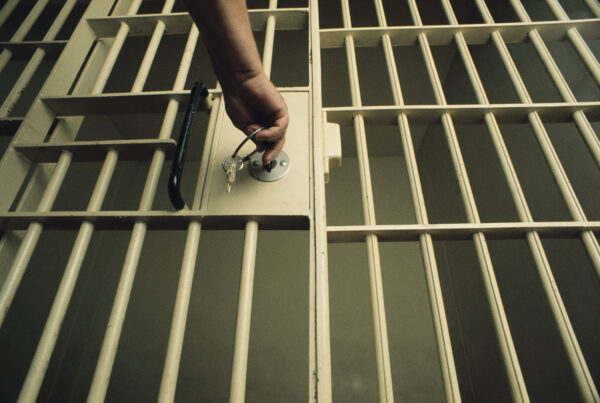A federal court has decided that Christian Identity be recognized as an official religion in the Michigan state prison system.
Lawyers for two inmates in the Michigan Department of Corrections successfully argued that their clients’ religious beliefs should be welcomed like other faith philosophies, despite organizations like the Anti-Defamation League and Southern Poverty Law Center identifying them as hate groups that believe ontologically white people are God’s chosen people.
The opinion rendered on Monday, June 26, was based on a case filed in 2013 by James Harrison Fox and Scott David Perreault. Their attorneys argued before the Sixth Circuit Court of Appeals Chief Judge Jeffrey S. Sutton, Judge Richard Allen Griffin, and Judge Jane Branstetter Stranch in April 2023, the merits of their faith, Christian Identity being acknowledged as an actual religion, according to court documents obtained by Atlanta Black Star.

Fox and Perreault said the prison officials would not let them worship or conduct bible study by themselves or have special dietary options that aligned with the principles of Christian Identity.
“If something is deemed a legitimate religion, entity, then any action taken by the government against that religion must survive what we call a strict scrutiny analysis,” attorney Sarissa K. Montague said to FOX 17.
The plaintiff’s lawyer said the government restricted her clients’ access to religious freedoms because it did not believe in the tenets of the faith.
“Essentially, the MDOC took an all-or-nothing approach. … They basically said we find this religion to be very dangerous, and they didn’t present any options for allowing that religion to conduct its services,” Montague said, adding, “They simply said, ‘you can’t do anything,’ and the courts found that you can’t do that. You have to provide, or at least give reasons, for why do you think that these actions shouldn’t be permitted.”
According to the Southern Poverty Law Center, “Christian Identity is an antisemitic, racist theology that rose to a position of commanding influence on the racist right in the 1980s. ‘Christian’ in name only, it asserts that white people, not Jewish people, are the true Israelites favored by God in the Bible.”
The judges noted that while Christian Identity is viewed as “explicitly racist” touting that only Caucasians are God’s chosen people, it is an actual religion.
The concern was that their extremely racist ideologies would exclude others and validate violence in the name of their faith. The lawyers for the plaintiffs said that their clients would allow people of all races and backgrounds to attend their worship services.
“The two plaintiffs don’t speak for the entire religion and the historical impact of the religion in this country, but secondly, and more importantly, that position forces the MDOC to close the barn door after the horses have already gotten out,” an attorney for the government unsuccessfully argued as reasons to not legitimize the religion.
The Justice Department uses criteria to determine a religion called “The Religious Land Use and Institutionalized Persons Act of 2000.” The judges said that the “plaintiffs satisfied the first two parts of the three-part RLUIPA test.”
Those things that they were able to prove to constitute Christian Identity as a religion were able to trump its “connection to white supremacist groups outside the prison setting, that alone cannot fulfill the least-restrictive-means analysis.”
With the ruling, MDOC can still seek an appeal and take it to the U.S. Supreme Court. If the highest court in the country does not hear the court, the decision will become state law.


